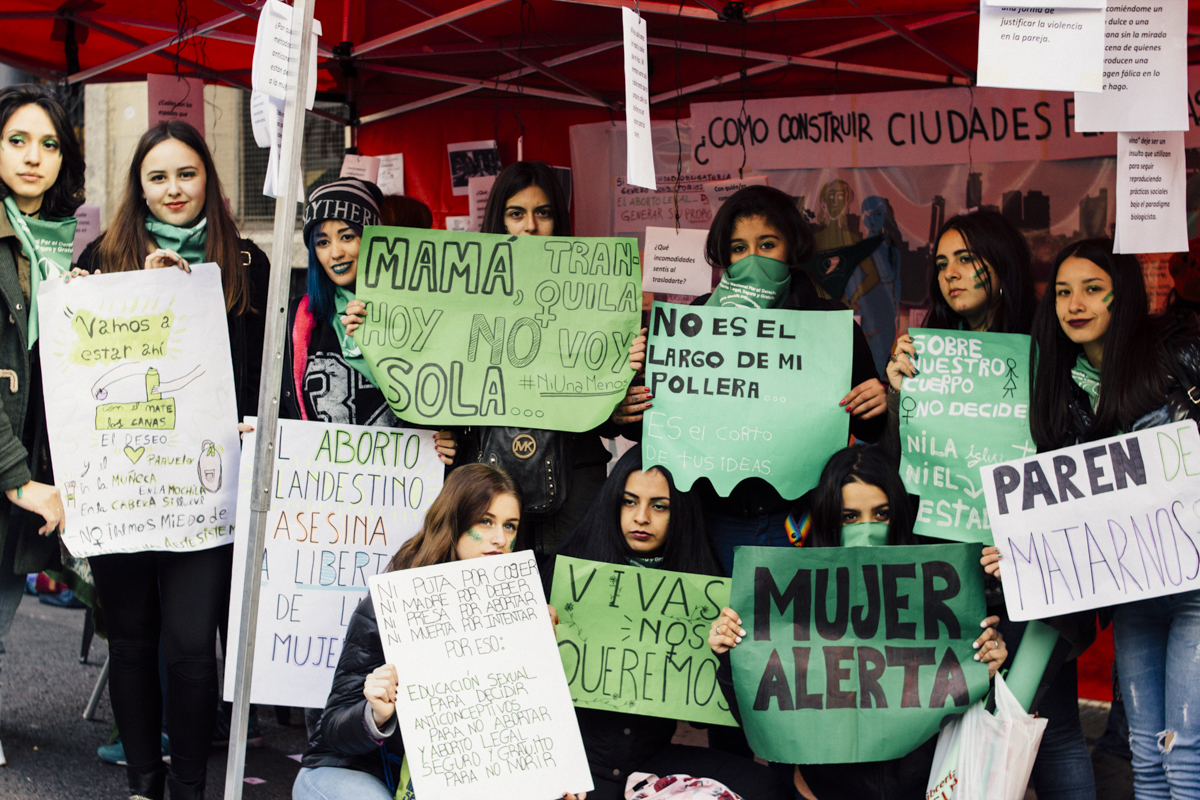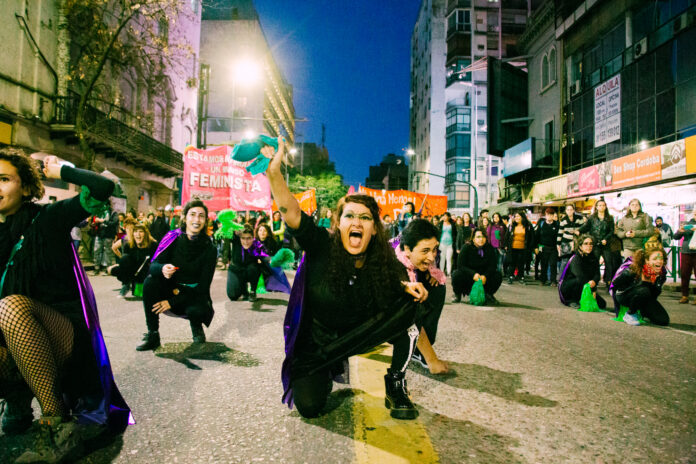(THIS ARTICLE IS MACHINE TRANSLATED by Google from Norwegian)
Increasing and complex acts of violence of different types and origins affect women's lives. The woman's body is the first to be affected; it acts as a social regulator and reflects one sexs power over another. During the first half of 2023, 151 cases of feminicid in different parts of Argentina. Such criminal acts constitute patriarchyits most important form of expression: the exercise of power over bodies that are not recognized as equal and must be disciplined (Segato, 2018). They are battered bodies that gain value as political accusations.
For all people, being together in the city is linked to experiences they have from the neighborhoods they live and act in. Something that is not the same for women as for men. Although there is progress to be made, we are far from achieving international consensus on the Sustainable Development Goals (SDG), Agenda 2030 or the New Urban Agenda (NUA 2016). And there is a persistent social lag when it comes to gender and equality.
The streets and public spaces are still perceived as intimidating by women.
In such a picture are increasing urban act of violenceare, both those that are experienced and those that are feared, central problems in the life of cities. Such phenomena affect people's everyday lives and the exercise of their rights as city-citizens (Falú, 2011). But they are not experienced in the same way by men and women womanr. Patriarchal society has devalued women's bodies, undervalued them and assigned them different roles. For centuries, women have experienced violence inflicted by patriarchal law. It was feminismn who managed to drag these acts of violence out of the private sphere and guilt, and bring the problem into the public and social space. The concept intersectionality has contributed to understanding the interplay of oppressions that a single woman can experience. In addition to other aspects such as race, ethnicity and age, feminist urbanism has identified the situational conditions that reinforce discrimination and violence starting from the places where women live.
Exchange of bodies
Latin America is urban: With more than 82 percent of the population living in the cities' diverse and fragmented areas (CEPAL 2020). It's here voldone takes place. It is explained from different perspectives. Some focus on crime, while others, such as Burgess (1998), point out that "violence occurs at every single spatial scale according to which society is organized. On territorial scales such as the body – the first area – the home, the neighborhood and the city. They all have their complexities and are not isolated from each other. They are social problems with urban expressions".
Violence against women, their bodies, is an old phenomenon. The new thing is that it takes on complex expressions and is perceived as inevitable and experienced as a bane of life in the cities. The fear exists before the real situations of violence occur. Therefore, the experience of insecurity changes people's everyday lives, especially women's. It limits the public sphere of life, where the streets and public space are constantly perceived as frightening. It involves a perception of crime that establishes "a citizenship of fear" (Susan Rotker, 2000).
It is very difficult to reflect on violence and (in)security that women experience in Argentina, without mentioning the region's political context. This applies to the current situation of Latin American democracies, their financial crises, the increased exploitation of raw materials and also of the cities' land and property. It involves the exploitation of bodies, especially female bodies, which must be seen together with the consequences of climate change and natural disasters as well as armed conflicts worldwide. These are low-intensity democracies kidnapped by the markets, a judiciary that bows to political forces (lawfare).
The complex acts of violence are also the result of a new logic of accumulation. Mushroom (2012) claim that it involves a dynamic where rights are removed, non-renewable resources are extracted, and new forms of dependence and dominance are created. Predation on nature on the one hand and urban exploitation on the other, according to Vásquez Duplá and Reese (2017), means a plunder expressed in the reduction of civil rights: evictions, uncontrolled rental prices, appropriation of state and private lands, gentrification and a series of actions that reinforces inequalities.

The indigenous peoples of northern Argentina
North i Argentina, in Jujuy, this extractivist model is tested as if in a laboratory. Here, those in power use violence, with impunity, to introduce a provincial constitution that allows attacks on indigenous and peasant lands. The content of this new constitution contradicts the principles of the national constitution of Argentina and international treaties related to indigenous land rights and the right to protest (Vidal, 2023). The initiative triggered a turbulent situation where human rights were violated. It led to a popular uprising in which the women led the way. They are seen as guardians of the land in Jujuy, as heroines who demonstrate against the expropriation of their ancestral lands to prevent the extraction of lithium. The women seek to defend the natural resources not only for their own communities, but also for all others who are threatened by the opportunities that the new provincial constitution implies (Vidal op. cit.).
The racism that devalues the indigenous people is one explanation for so much impunity and violence. That is, "those who do not know, for whom it is necessary to decide and for whom it is not worth consulting". As Svampa (2023) points out, the indigenous peoples in the north of Argentina are "trapped in a political polarization that is particularly created in the context of the right-wing turn in politics".
In the conflict, which was triggered by the demand for lithium, the impressive resistance from the people of Jujuy appears as a strong and unwavering popular movement. It has lasted for more than two months, and the women among the indigenous people are the prominent leaders. Central to the requirements are the ancestral lands. For this, the previous national legislation gave priority to the indigenous peoples. However, the Jujuy provincial government withdrew it, as it also involves demands for natural resources and compensation for environmental damage.
Prayer for a life free of violence
On social media, the voice of a girl with an indigenous background singing: "Soldier, don't kill my mother or your grandmother" is reproduced and moving. The song targets the state, and reveals the systemic impunity context in which the violence is carried out with the media's concealment. But the revelations are reproduced on social media and disseminated in critical environments.
The girl's plea for a life free of violence is an expression of the growing feminist culture that Las Tesis was as well. It conveys – based on Rita Segato's lyrics – anti-violence concepts from feminism into a musical language: "A rapist on your way" is a determined and powerful text that has been translated and reproduced all over the world. In the central stanzas it reads: “Patriarchy is a judge who judges us because we are born, and our punishment is the violence you can see. It's femicide. And impunity for my killer… But the fault was not mine, not where I was, not how I was dressed… The rapist was you… It is the police, the judges, the state, the president… The oppressive state is a macho rapist…”
Patriarchal violence inside and outside the home uses coercion and force. It is men's violence against women, their possessions, their lands, their bodies and lives. Violence is the exercise of power and control. It limits women's lives in the cities, on the streets, in means of transport and in public space.
Violence, difference, patriarchy, neoliberalism, structural racism and systemic violence constitute a vicious framework that supports a violent and owner-glorifying patriarchy. It persists and permeates Latin American and global society. Despite progress and losing resistance over decades against neoliberalism, authoritarian regimes and churches, political parties still focus on demonizing the progress and rights achieved for and by women.
Ana Falú (text and photo)


